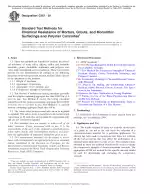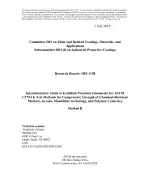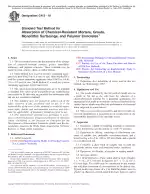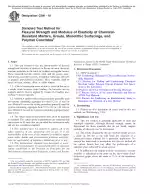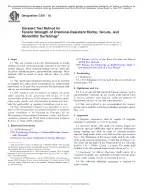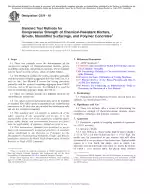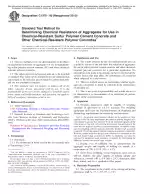ASTM C267-20 PDF Download
Standard ENStandard Test Methods for Chemical Resistance of Mortars, Grouts, and Monolithic Surfacings and Polymer Concretes
Also Known As:
The ASTM C267-20 standard consists of test methods that are used for evaluating the chemical resistance of various materials such as resins, silica, silicates, sulfur, hydraulic materials, grouts, monolithic surfacings, and polymer concretes under expected service conditions. These test methods allow for the determination of changes in properties including weight of specimen, appearance of specimen and test medium, and compressive strength of specimens after exposure to the test medium.
It is important to note that the results obtained from these test methods should not be the sole basis for selecting a chemical-resistant material for a specific application, but rather serve as a guide. These test methods do not encompass all factors that may affect the performance of a material in actual service conditions. Therefore, it is recommended to use the appropriate ASTM test method for determining and evaluating the compressive strength of the specific material, as the strength values obtained from the test methods described in this standard should not be used for this purpose.
The standard also includes three different test methods (A, B, and C) to accommodate different systems containing various aggregate sizes. Test Method A is suitable for systems with aggregate less than 0.0625 in. (1.6 mm) in size, Test Method B is used for systems with aggregate ranging from 0.0625 to 0.4 in. (1.6 to 1.0 mm) in size, and Test Method C is designed for systems with aggregate larger than 0.4 in. in size.
| Descriptors | weight, test specimens, silicates,Grouts,Mortars,Polymer Concrete,Silica,SilicidesCOMMA Silicates and Silanes,Sulfur,Appearance,Chemical Resistance,Compressive Strength,MassCOMMA Volume and Weight,Monolithic Surfacings |
| ICS Codes | 91.100.10 - Cement. Gypsum. Lime. Mortar |
| Language(s) | English |
| File Size | 102.4 KB |

